I want to call a Python function from C++ code in OMNeT++ simple module.
I debugged the code using gdb. It passes all lines fine, but at the end the
segmentation fault occurs after Py_Finalize();.
I found the following issue on GitHub that describes the same problem. But it did not help me to resolve the problem.
double result=0;
// 1) Initialise python interpretator
if (!Py_IsInitialized()) {
Py_Initialize();
//Py_AtExit(Py_Finalize);
}
// 2) Initialise python thread mechanism
if (!PyEval_ThreadsInitialized()) {
PyEval_InitThreads();
assert(PyEval_ThreadsInitialized());
}
PyGILState_STATE s = PyGILState_Ensure();
PyRun_SimpleString("import sys; sys.path.append('/home/mypath/')");
PyObject *pName = PyUnicode_DecodeFSDefault((char*)"integrationTest");
PyObject* pModule = PyImport_Import(pName);
if (pModule != NULL)
{
PyObject* pFunction = PyObject_GetAttrString(pModule, (char*)"calculateExecutionTime");
/// changement will be held in this level Args and function result.
PyObject* pArgs = PyTuple_Pack(2,PyFloat_FromDouble(2.0),PyFloat_FromDouble(8.0));
PyObject* pResult = PyObject_CallObject(pFunction, pArgs);
result = (double)PyFloat_AsDouble(pResult);
///////
}
// Clean up
PyGILState_Release(s);
Py_DECREF(pName);
Py_DECREF(pModule);
Py_Finalize();
